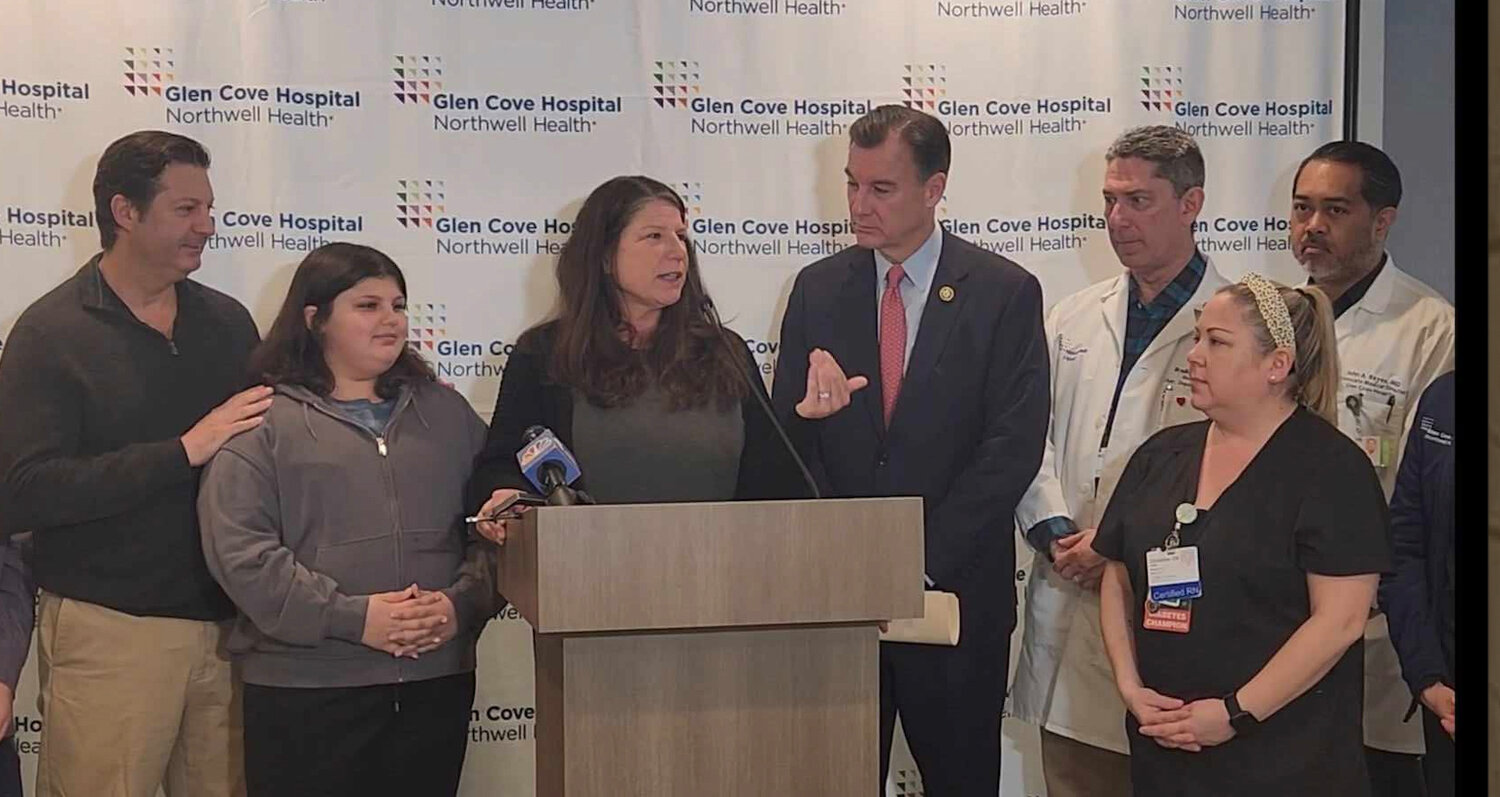Gratitude for years of affordable health care
Rebecca and Craig Castronovo can’t imagine a time where their two children, Ella, 11, and Juliette, 10, won’t have needed health insurance. For Ella, a diabetic, and Juliette, who is diagnosed with Tracheomalacia, an underdeveloped windpipe, medicine and doctors’ visits would cost thousands of dollars per month if the Affordable Care Act hadn’t been enacted in March of 2010.
The couple attended a news conference organized by Congressman Tom Suozzi last Saturday at Glen Cove Hospital.
“There wasn’t time really to think about the long-term issues with diabetes or anything like that,” said Rebecca Castronovo, after the news conference. “It was just we have to take care of our daughter. We need to get all the medical supplies and prescriptions everything that we need and learn as much about this as we can in order to keep her healthy.”
Rebecca added that many people don’t realize that diabetes is a “24-hour-a-day, seven-days-a week condition, and there is no time off from diabetes.” Ella now monitors her glucose levels through a phone application.
Diagnosing both Ella and Juliette with their conditions was an uphill battle. At first, doctors believed Ella had a viral infection, but Rebecca was skeptical, saying the symptoms of excessive thirst, urination and irritability were clear signs of diabetes, which they saw in the family’s diabetic cat. Juliette was first misdiagnosed with asthma, until last year.
“Not being gainfully employed, I would have had no idea how to pay for everything prior to the Obama Care plan,” said Craig, after the news conference. “I don’t know how we would have made it financially.”
But for families like the Castronovo’s, the Affordable Care Act, enacted by former President Barack Obama 14-years-ago, aims to make health insurance more accessible and affordable through various provisions and programs. Across coverage groups, a total of 45 million Americans are enrolled in coverage related to the ACA, the highest total on record. This represents 14.1 million more people enrolled than in 2021 and 32.5 million more people enrolled than in 2014.
Eligibility for ACA programs includes individuals who do not have access to employer-sponsored insurance or government programs like Medicaid or Medicare, who can purchase insurance through the Health Insurance Marketplace.
Medicaid expansion under the ACA extends coverage to more low-income adults, with eligibility based on income and household size, though it varies by state. Subsidies are available to individuals and families with incomes between 100 percent and 400 percent of the federal poverty level to help offset premiums and out-of-pocket costs for Marketplace plans.
Additionally, young adults can stay on their parents’ insurance until age 26, and insurance companies are prohibited from denying coverage or charging higher premiums based on pre-existing conditions.
During a press conference on March 23, the anniversary of the ACA, Congressman Tom Suozzi, of Glen Cove, highlighted the significant impact of the ACA in New York state, emphasizing its success in reducing healthcare cost for both children and adults, while contrasting it with states like Florida and Texas.
Suozzi emphasized the ACA’s prohibition of discrimination based on pre-existing conditions, and highlighted its many benefits, such as eliminating annual or lifetime coverage limits and allowing children to stay on their parents’ insurance until age 26. Suozzi acknowledged the ACA’s imperfections, particularly regarding high health care costs, but advocates for its preservation.
He also spoke of efforts to address issues like excessive prescription drug prices.
Suozzi warned against ongoing threats of ACA repeal and stressed the importance of celebrating and safeguarding its achievements.
“In New York, we have the lowest of uninsured children, and the lowest rate of uninsured adults in the country because we use the Affordable Care Act,” Suozzi. “This is something we need to celebrate because this affects real people’s lives, and the idea that even now, 14 years later, that there are folks that think we should be doing away with this, it’s just unfathomable to me.”






